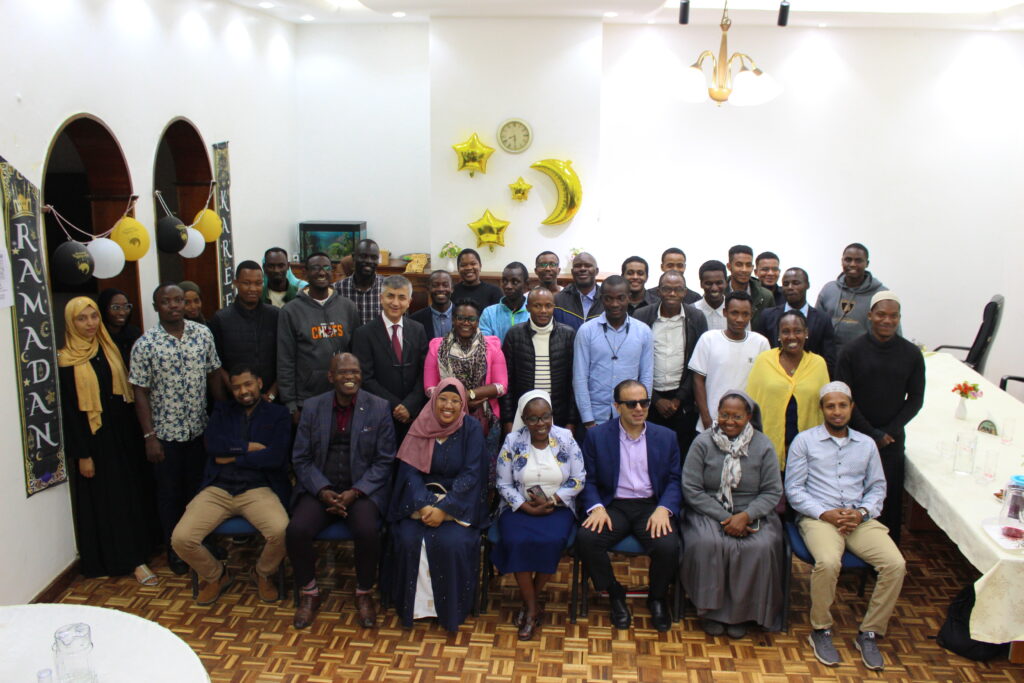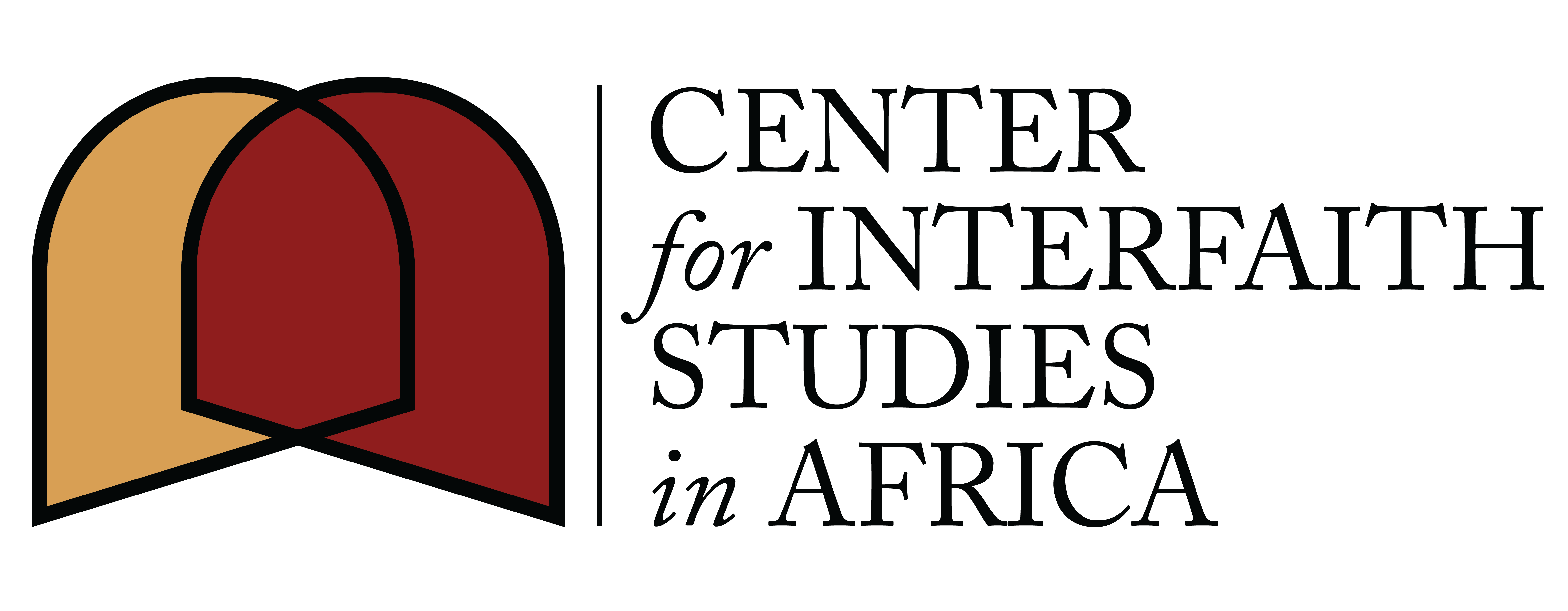
Group photo of participants at the Iftar meal organized by the Harmony Institute @Christy Ininahazwe, SJ
The words of Psalm 133 ring true in a world often marked by division: “Behold, how good and pleasant it is when brothers dwell in unity!” This verse took on a profound meaning for me when I attended an interfaith iftar meal organized by the Harmony Institute during this Ramadan season. It was an unforgettable evening of shared presence, engaging dialogue, and an encounter with the beauty of unity in diversity.
Iftar, the meal that breaks the daily fast during Ramadan, is a moment of gratitude and togetherness for Muslims worldwide. As the sun dipped below the horizon, marking the time for breaking the fast, I found myself surrounded by individuals from different faith traditions. Some were Muslim, others Christian, and perhaps even those from other backgrounds, yet we all sat at the same table, waiting to partake in the simple yet meaningful act of breaking bread together. The atmosphere was one of warmth and mutual respect—an embodiment of the psalmist’s vision of unity.
The iftar meal was not merely about food but about fellowship. It was a reminder that despite doctrinal differences, we share a common humanity. Listening to Muslim brothers and sisters speak about Ramadan—their reflections on fasting, prayer, and acts of charity—helped me appreciate the deep spiritual discipline embedded in their tradition. In turn, I found an opportunity to share the Christian perspective on fasting and the significance of communal worship. These exchanges were not debates but bridges, affirming the richness found in learning from one another.
Psalm 133 does not just call for unity—it calls for a unity that is good and pleasant. That evening, I saw that goodness and pleasantness in action. Unity is not uniformity; it is not about erasing differences but embracing them with love and respect. Like the oil running down Aaron’s beard or the dew of Hermon falling on Zion (as the psalmist poetically describes), true unity is a blessing that refreshes and sanctifies.
This sentiment is echoed in the Qur’an, which states: “O mankind, indeed We have created you from male and female and made you peoples and tribes that you may know one another. Indeed, the most noble of you in the sight of Allah is the most righteous of you. Indeed, Allah is Knowing and Acquainted.” (Qur’an 49:13). This verse beautifully complements Psalm 133, emphasizing that diversity is part of God’s design, and righteousness—not division—is what makes one truly noble. Another verse from the Qur’an highlights the significance of prayer and fasting in strengthening faith and unity: “O you who have believed, decreed upon you is fasting as it was decreed upon those before you that you may become righteous.” (Qur’an 2:183). This verse underscores fasting as a means of spiritual growth, connecting believers across generations and faith traditions. Furthermore, the Qur’an encourages acts of charity and sharing, saying: “And they give food in spite of love for it to the needy, the orphan, and the captive, [Saying], ‘We feed you only for the countenance of Allah. We wish not from you reward or gratitude.’” (Qur’an 76:8-9). This spirit of selfless giving was evident in the interfaith gathering, where sharing a meal became an act of solidarity and love.
As Ramadan comes to an end, the celebration of Eid al-Fitr marks a time of joy, gratitude, and renewal. It is a moment for families and communities to come together, offering prayers, sharing meals, and extending generosity to those in need. The spirit of Eid reminds us that fasting is not just about abstaining from food and drink but about cultivating compassion, gratitude, and a deeper connection with God and one another. In the same way, interfaith gatherings like this iftar meal serve as powerful reminders of what is possible when we come together in understanding and peace. They challenge us to move beyond fear and suspicion, to recognize the image of God in one another, and to build friendships that transcend barriers.
As I left the gathering that night, my heart was filled with gratitude. The evening reinforced my belief that the path to peace and understanding is found in such simple yet profound encounters. Psalm 133 is not just an ideal—it is a reality that can be lived out when we open our hearts to one another. And for that, I am deeply thankful.
Eid al-Fitr, March 31st 2025
Ininahazwe Alain Christy, sj




